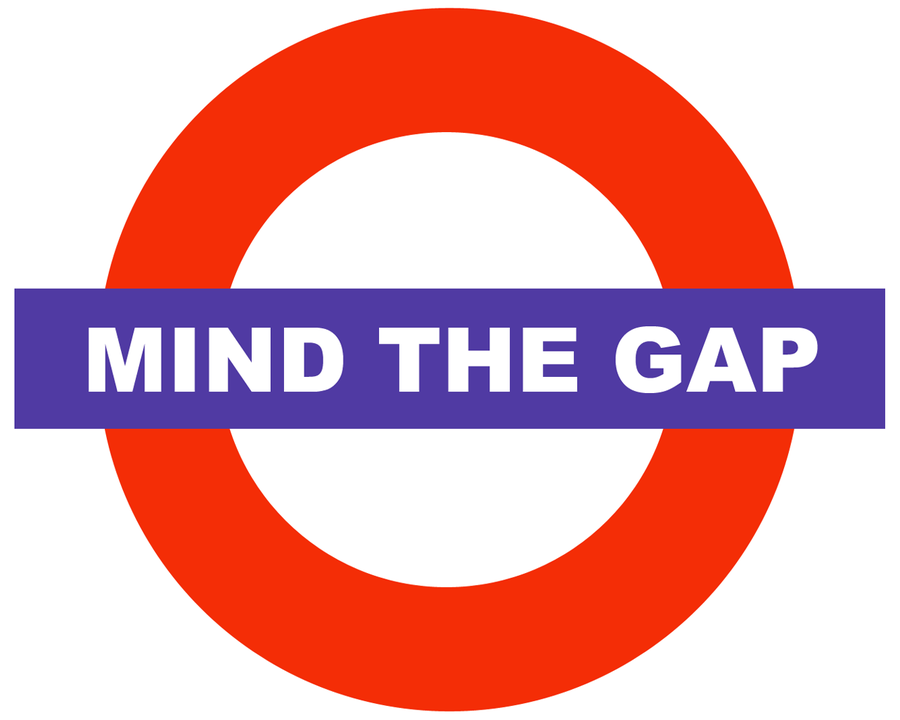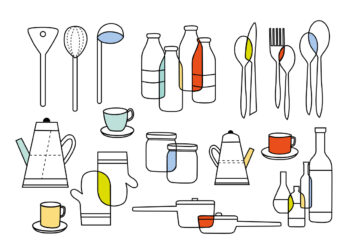
Robert Harington’s recent post about gender diversity was prompted by a session at this year’s SSP conference. Mind the Gap: addressing the need for more women leaders in scholarly publishing was the brainchild of Lauren Kane, COO of BioOne, who was inspired by an earlier post I’d written about the lack of women in leadership positions in scholarly publishing. We gathered a great group of women from different backgrounds and at different stages of their career – from Sara McNamara, who’s just starting in scholarly publishing, having recently moved to Oxford University Press from academia; through Angela Cochran, Director of Journals at the American Society of Civil Engineers and President of the Council of Science Editors, and Ann Michael, President and Founder of Delta Think and also SSP President;to Mady Tissenbaum, whose career at The Journal of Bone & Joint Surgery began as a copy editor and ended (with her retirement in June this year) as Publisher.
We provided the group with a couple of questions to kick off the discussion, and I’d like to share with Scholarly Kitchen readers the answers to one of these questions: What advice would you give your younger self/a young woman starting a career in scholarly publishing today? The responses ranged from the pragmatic to the aspirational and, although our discussion was primarily focused on women early career publishers, I believe our answers are every bit as relevant for men.
- Have a career plan. That doesn’t mean you should plan every stage of your career – in fact, that’s probably not a good idea – but it is worthwhile thinking sooner rather than later about what sort of organization you ultimately want to work for (e.g., large or small, nonprofit or commercial, startup or established, etc.), and considering broadly what your interests are.
- Look upward. It’s also a good idea to look beyond the people working one or two levels above you to those at middle to senior levels in the organization. Apart from the fact that this will give you a sense of the types of position open to you later in your career, it will also help establish how open your organization currently is to diversity – gender or other. I’m not saying that, if this is the case at your organization now, you should assume that it will always be so. But it may help you prepare for a more senior role later if you know what sort of environment your current leaders are operating in.
- Be open to new opportunities, even if they don’t necessarily fit in with your plan. Being willing to move sideways rather than upwards – or to take a salary cut – for a job in your dream company or in order to move into a different function, for example, may prove worthwhile in the longer term.
- Push yourself outside your comfort zone. This can be challenging for many women – study after study shows that we are more risk averse than men. But why? If the person asking us is confident that we can deliver, why aren’t we? And every time we decide to take on a new challenge, the next one gets that much easier – practice really does make perfect! So accept the challenges that come your way, don’t overthink whether or not you’re ‘qualified’ for the job you’ve been invited to do.
- Speak up. One great way of starting the process of doing this is to look for small ways to participate more actively in meetings and discussions at work. For example, challenge yourself to say something at every meeting you attend. Ask a question (if you don’t know the answer, the chances are that at least one other person in the room doesn’t either) or contribute an example from your own experience. As with saying yes, every time you speak up it gets easier. Not only that, but you are encouraging others to participate too. And in leading by example, you’re also building a network, since the other people in the meeting are more likely to remember you.
- Challenge bias and inequality. It’s especially important to speak up if you see or experience inequality. Unconscious bias blinds us all – men and women – and recognizing our biases is the first step in engaging with, understanding, and ultimately overcoming them. So even if you don’t feel comfortable pointing out inequality publicly, make sure you talk to someone about it – your manager, mentor, HR department, or other colleagues. Change will happen much more quickly if we have the courage to share our own experiences of inequality and challenge ourselves, our colleagues, and our organizations to address them.
- Find your voice. From a book club discussion to volunteering to serve on a committee of an industry organization, there are plenty of ways to practice speaking up in small, friendly groups outside of your own organization. Find one that works for you and not only will you become more confident about participating in work discussions, but – again – you’ll also be expanding your network.
- Practice not saying sorry. As a lifelong and habitual apologizer (I’m a woman and I’m British – an especially bad combination!), I fail at this more than almost anything else. And actually, I don’t believe that you should never say you’re sorry, but I’ve come to realize that the trick is to apologize mindfully rather than mindlessly.
- For working parents. I have no scientific evidence to back this up, but I suspect that women with children at home apologize more than most. We working mums (and some dads) are so pathetically grateful to any organization that allows us a modicum of flexibility in terms of our working conditions that we feel hugely guilty if – horror of horrors – we can’t actually come into the office on our non-work day for an in-person meeting. Or we have to leave work promptly at 5 for a parent-teacher meeting. Or we can’t drop everything to catch a flight to meet with an irate client the next day. Unless you’re wealthy enough to have a live-in nanny, or lucky enough to have grandparents who are close enough, healthy enough, and willing enough to help out at the drop of a hat, working parents just don’t have that sort of flexibility. Right? Well yes, sort of – but what many of us do have are partners or spouses with whom to share the child care. At least, that’s the hope. So my advice to those of you who don’t yet have children, but hope to one day, is to please make sure you have that conversation with your partner up front.
- Know when – and how – to move on. At some point, if you’re unable to fulfill your goals in your current position, you need to move on. That may be easier said than done, especially if you are restricted geographically or in terms of the hours you work (see #9). But as noted previously moving on doesn’t have to mean moving up (see #3) nor necessarily changing organizations. If you like your current company but not your current position, look around for other opportunities where you are – or even identify new ones. One of my best career moves was to lobby for the creation of a society relations role – something that hadn’t previous existed. It took several years (and a lot of persistence on my part!) but the job was eventually approved, and I was well-placed to fill it.
With thanks to Angela, Ann, Lauren, Mady, and Sara for their help with this post – we’d all love to hear if our suggestions resonate with you and/or if you have other advice to share.
Discussion
11 Thoughts on "Words of Wisdom: Advice for our Younger Selves from Six Women in Publishing"
Great list, and definitely applies to men, too. Good advice for any stage of a career. I’ve figured out a few of these on my own, but some good suggestions I’ll take going forward.
Great list – thanks Alice for collating, and all for sharing. It’s good to keep bringing this topic up, in constructive and thoughtful ways!
Learn your profession – sales, production, editorial, finance and distribution. Learn how to work with people. Never present a problem without a well thought out solution. Accomplish tasks to the best of your ability. While working for a company be loyal to it and never bad mouth it after leaving.
As someone who has been working in Publishing for nearly 20 years, one of the things I’ve learned is that increasingly being ‘open to opportunity’ is a particularly important skill to cultivate as the scholarly publishing environment is evolving so much. Career progress is less about ‘upwards’ and more about expanding your skills and experiences for job satisfaction and personal fulfilment. This is an important lesson for anyone entering the industry today. As for doing something outside your comfort zone – it’s never too late. Posting here (when I read nearly all Scholarly Kitchen articles) is a first for me!
I agree 100% with everything Zoe says: everything we do presents a learning opportunity. Remembering both good and bad experiences puts each of us in a great position to mentor a younger version of ourselves.
I’m taking notes! Excellent post, Alice! Many of these resonate, serving as helpful advice and reminders.
Thanks for this Alice, and all panel participants. I have one small quarrel with your advice on apologizing, even though you probably meant over- apologizing. ‘Sorry’ means many things, including transparency, responsibility, and the moral flexibility to change your mind in the face of being proven wrong. Men don’t apologize enough, and we don’t change that behavior by acting more like them.
And then there’s my personal bugaboo: “sorry, no.” Meaning “I’m delighted to say you’re wrong.” That one is a nasty Americanism we can all benefit from forgoing. But I digress.
Alice, this is a great post, and the session at SSP was a great idea. The only thing that struck me is the mention of taking a salary cut. While I have taken a cut more than once in my career, I wish I had held out to at least stay even because we know that women still make less than men do. We don’t want to do anything to put ourselves further behind.
Thanks all for your thoughtful feedback. Marjorie – yes (sorry 🙂 I should indeed have said over-apologizing! I have no plans to stop saying sorry completely any time soon for all the reasons you mention. Kerry – you raise a good point. Another good piece of advice would have been to know your worth and negotiate accordingly. And Zoe – thank you for your first-time comments, I hope they will be the first of many!
In case anyone is interested CCC has just interviewed Robert Harington and me about our views on gender diversity in scholarly publishing for their Beyond the Book podcast series, scheduled to go live on August 3.
I was reminded, reading this, of keynote speaker (and Makerbot CEO) Jenny Lawton’s advice that those who reach the top of the mountain should lend a hand to those on the way up. Alice and the excellent panelists on this session are certainly doing that! Thanks for an excellent post and l hope to see the discussion continue at next year’s meeting!


